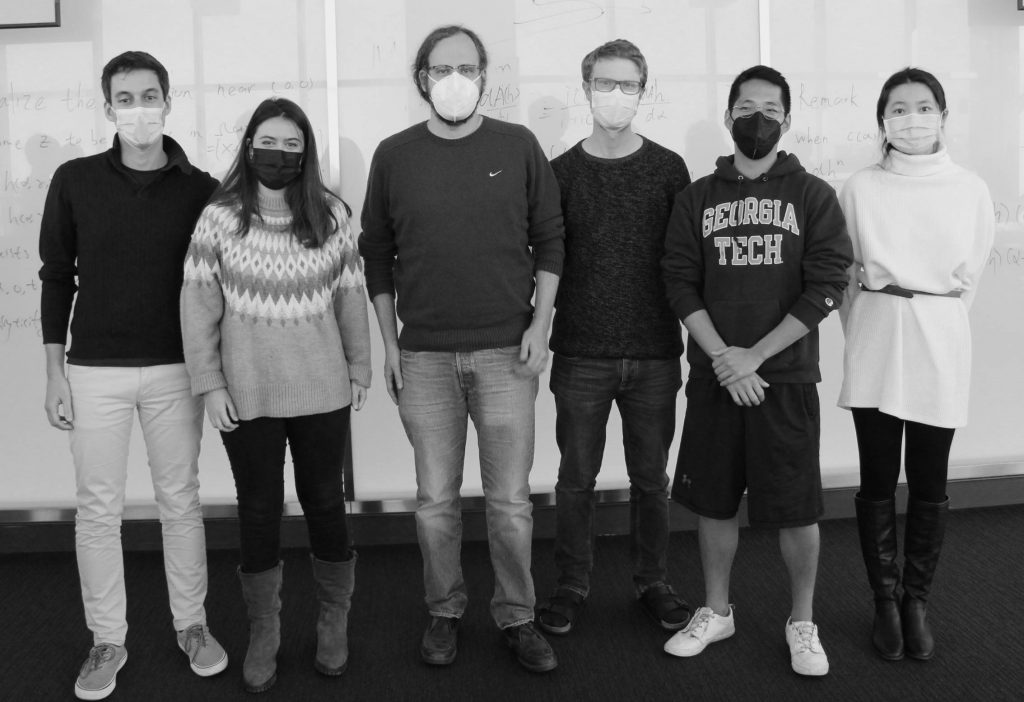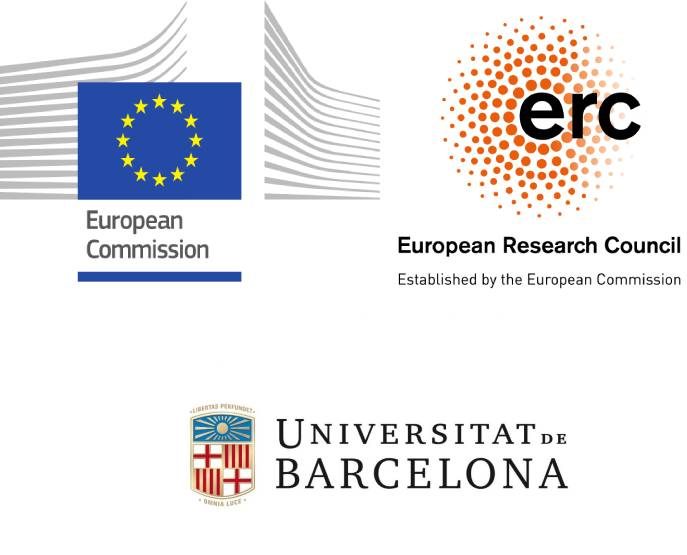This project has received funding from the European Research Council (ERC) under the European Union’s Horizon 2020 research and innovation programme in the panel ERC Starting grant under grant agreement No 852741.
The ERC’s mission is to encourage the highest quality research in Europe through competitive funding and to support investigator-driven frontier research across all fields, on the basis of scientific excellence. ERC grants are awarded through open competition to projects headed by starting and established researchers, irrespective of their origins, who are working or moving to work in Europe. The sole criterion for selection is scientific excellence.
ERC has the aim to recognise the best ideas, and confer status and visibility on the best brains in Europe, while also attracting talent from abroad. In the long term ERC looks to substantially strengthen and shape the European research
system.
In the long term ERC looks to substantially strengthen and shape the European research system.
For more information, please visit the ERC’s website.
“CAPA” team members

From left to right: Eduardo García-Juárez (postdoc Universitat de Barcelona (UB) 2020-2021), Claudia García (postdoc UB), Prof. Javier Gómez Serrano (Principal Investigator of the ERC Starting Grant “CAPA”), predoc Joel Dahne (Uppsala University), Jaemin Park (postdoc UB) and predoc Jia Shi (Princeton University). photo taken: December 2021
About
The EU-funded CAPA project will undertake interdisciplinary research to address the open and practical problems singularities cause in incompressible fluids. Researchers will use numerical analysis, computer-assisted proofs and modern methods to compute partial differential equation solutions and carry out harmonic analysis. This approach is essential for treating singularities in incompressible Euler equations and surface quasi-geostrophic equations, as well as in spectral geometry applications. “CAPA’s” findings could lead to the development of very powerful theorems describing incompressible fluids and may solve problems that cannot be addressed currently through conventional methods.
The goal of this proposal is twofold: on the one hand to pursue methods and ideas developed in recent work in the search for either singularities or global existence in incompressible fluids with finite energy and on the other transfer the techniques to solve long-standing open problems in spectral geometry. A key ingredient in its success is to have accurate numerics together with a deep understanding of the regularity theory. Therefore, the interdisciplinary nature of this project, which involves numerical computations, computer-assisted proofs, modern PDE methods and harmonic analysis, is an essential ingredient for the successful outcome.
This proposal is divided in three blocks, the first two involving global existence and/or singularities for: the incompressible Euler and Navier-Stokes equations; the surface quasi-geostrophic (SQG), the generalized-SQG equations and related models; and a third one on applications to spectral geometry. There is a strong analogy between the SQG and the 3D Euler equations, and many results that hold for the former also hold for the latter.
A major theme is the interplay between rigorous computer calculations and traditional mathematics. Interval arithmetics are used as part of a proof whenever they are needed. As evidence of its capabilities, new techniques to show singularities in PDE related to fluid mechanics – even in low regularity settings or involving singular integrals – have been developed. Eigenvalue problems are also now amenable to computer-assisted proofs. This is a completely novel approach that can be blended with more classical ones, resulting in very powerful theorems solving problems that can not be treated currently with pen and paper methods.
Home Institution
The University of Barcelona (UB), established in 1450, is one of the top universities in Southern Europe, and it ranks first among Spanish universities according to the QS World University Rankings and the Shanghai Ranking. It has become a European benchmark for research activity, both in terms of the number of research programmes that it conducts and the excellent results achieved.
The Mathematics Department at UB has a long tradition and it has been an important center of research in mathematics for decades. Many of their professors are members of the IMUB, an institute that was created to foster and support research in all areas of Mathematics in 2000. The IMUB hosts conferences, workshops, seminars and advanced courses, and promotes interdisciplinary collaboration. In addition, the department is part of the Barcelona Graduate School of Mathematics (BGSMath), a collaborative initiative of mathematical research groups in Barcelona which was awarded a “Unit of Excellence Maria de Maeztu” distinction by the Spanish Government in 2015.
Javier Gómez-Serrano

Prof. Gómez-Serrano holds a double appointment between University of Barcelona (as Investigador Distinguido) and Brown University (as Visiting Professor) since 2020. Before that, he was at Princeton University: first as Instructor (2013-2016) and later promoted to Assistant Professor and appointed Director of Graduate Studies (2016-2020).
His research interests are analysis, spectral geometry, partial differential equations (PDE) arising in fluid mechanics, and computer-assisted proofs applied to those equations. A fundamental role in his research has come from having accurate numerics together with a deep understanding of the regularity theory. He has been especially successful in the interplay between rigorous computer calculations and traditional mathematics, leading to computer-assisted proofs in PDE. Lately, he has also been investigating research directions connected to machine learning.
His research has been published in journals such as the Annals of Mathematics, Proceedings of the National Academy of Sciences and Duke Mathematical Journal and has been sponsored by agencies such as the US National Science Foundation and the Simons Foundation. He has recently been awarded an ERC Starting Grant (ERC-StG-852741-CAPA) and an NSF CAREER Grant.
He has been honoured with the “Antonio Valle” Prize, the “Vicent Caselles” Prize (best young Spanish applied mathematician and best young Spanish mathematician), and the Princeton Junior Faculty Teaching award.
For further information on Javier’s previous publications and research career, please refer to his personal website.

